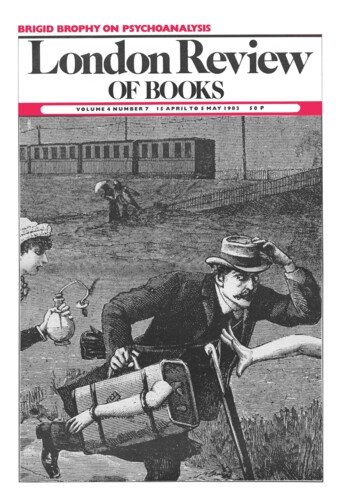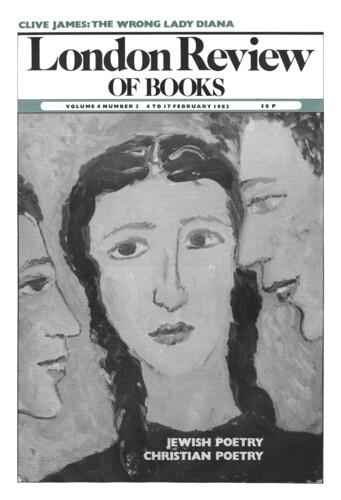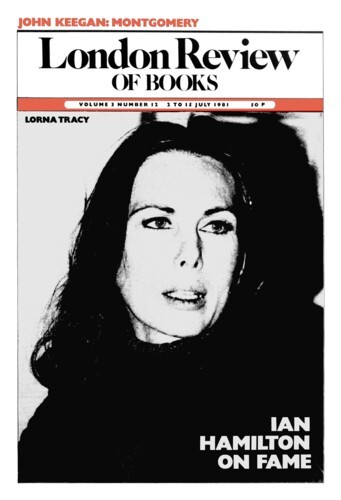Transference
Brigid Brophy, 15 April 1982
The phenomenon of transference – how we all invent each other according to early blueprints – was Freud’s most original and radical discovery. The idea of infant sexuality and of the Oedipus complex can be accepted with a good deal more equanimity than the idea that the most precious and inviolate of entities – personal relations – is actually a messy jangle of misapprehensions, at best an uneasy truce between powerful solitary fantasy systems. Even (or especially) romantic love is fundamentally solitary, and has at its core a profound impersonality. The concept of transference at once destroys faith in personal relations and explains why they are tragic: we cannot know each other.




